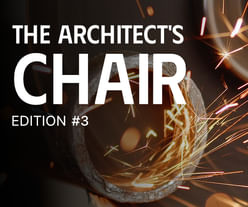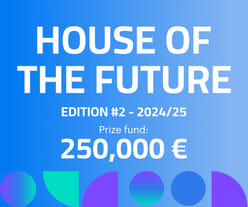

The fourth RIBA International Prize has been awarded to the Modulus Matrix: 85 Social Housing complex in Cornellà, Spain, by Peris + Toral Arquitectes for 2024.
The design arranges five to six modules worth approximately 139 square feet apiece into 85 homes inspired by Japanese design with 18 on each floor. Circulation cores are placed in each corner of the structure for easier access to the building, and units receive an ample amount of sunlight and are easily cross-ventilated, thanks to their dual orientation.

This "loose fit architecture" (as RIBA's president Muyiwa Oki calls it) is the key that helps the project stand out over more conventional forms of housing. Setting its grid-like layout around a central courtyard facilitates easy movement and social exchange, creating in the end "a democratic house" that is sensitive to multigenerational households and other dynamics thought of by architect Marta Peris during her research into the films of Yasujirō Ozu.
Barcelona’s Metropolitan Institute of Land Development and Property Management (IMPSOL) was the client, expanding on its critically well-received housing development model that has produced over 5,000 homes to date in the region. The project was completed in 2021 and stands as Spain’s largest timber frame structure.

Peris was joined by her fellow co-founder Jose Toral in saying: "We are very proud of the positive feedback from residents of Modulus Matrix. Some were unsure about features like entering through a terrace, having an open kitchen at the centre of the home, and equal-sized rooms without corridors, but their perspectives changed after living in the space. Now they feel this way of living better adapts to their needs. Their first-hand experiences provide valuable insights into how housing around the world can evolve."
RIBA’s jury Chair, Lu Wenyu, commented finally: "Through this innovative approach to social housing, Peris + Toral Arquitectes has responded to the shifting demands of societal groupings by crafting a housing project that is adaptive, inclusive and sustainable. Not defined by stereotypes or fixed assumptions of what constitutes 'family', the intelligent organization of space encourages lively interaction and connection within the community, ensuring that the architecture functions on different scales – from the discrete dwelling to the collective space. This building has set a precedent for future developments in Barcelona and beyond."
The 2024 RIBA International Prize winner follows Kashef Chowdhury/URBANA (2021), Aleph Zero and Rosenbaum (2018), and Grafton Architects (2016) as the latest recipient of the award. It was joined by the International Emerging Architect Award 2024 winner ARCity, which won for their Six Bricolage Houses project in Shenzhen, China.

Show Garden Competition for Seoul International Garden Show 2025
Register/Submit by Wed, Dec 18, 2024

2025 Concrete Masonry Competition
Register by Wed, Apr 9, 2025
Submit by Wed, Jun 4, 2025

The Architect's Chair / Edition #3
Register by Wed, Jan 15, 2025
Submit by Tue, Feb 18, 2025

250,000 € Prize / HOUSE OF THE FUTURE 2024/25
Register by Wed, Apr 30, 2025
Submit by Mon, Jun 2, 2025
2 Comments
Nice, but I can't shake the sense that the atrium, austere, looks like that in a prison, with the residents caged in. More plants in the courtyard? It doesn't look very inviting for social exchange.
When adding plants are the answer, the building has failed. Then again, one could simply add decoration and you wouldn't need plants to enliven your design :)